No Tags
Specifications
General Characteristics
- Predecessor Tutorial Plane
- Created On Android
- Wingspan 9.0ft (2.7m)
- Length 36.2ft (11.0m)
- Height 11.5ft (3.5m)
- Empty Weight 2,830lbs (1,283kg)
- Loaded Weight 2,962lbs (1,343kg)
Performance
- Power/Weight Ratio 3.792
- Horse Power/Weight Ratio 0.168
- Wing Loading 146.8lbs/ft2 (716.8kg/m2)
- Wing Area 20.2ft2 (1.9m2)
- Drag Points 1826
Parts
- Number of Parts 52
- Control Surfaces 3
- Performance Cost 355

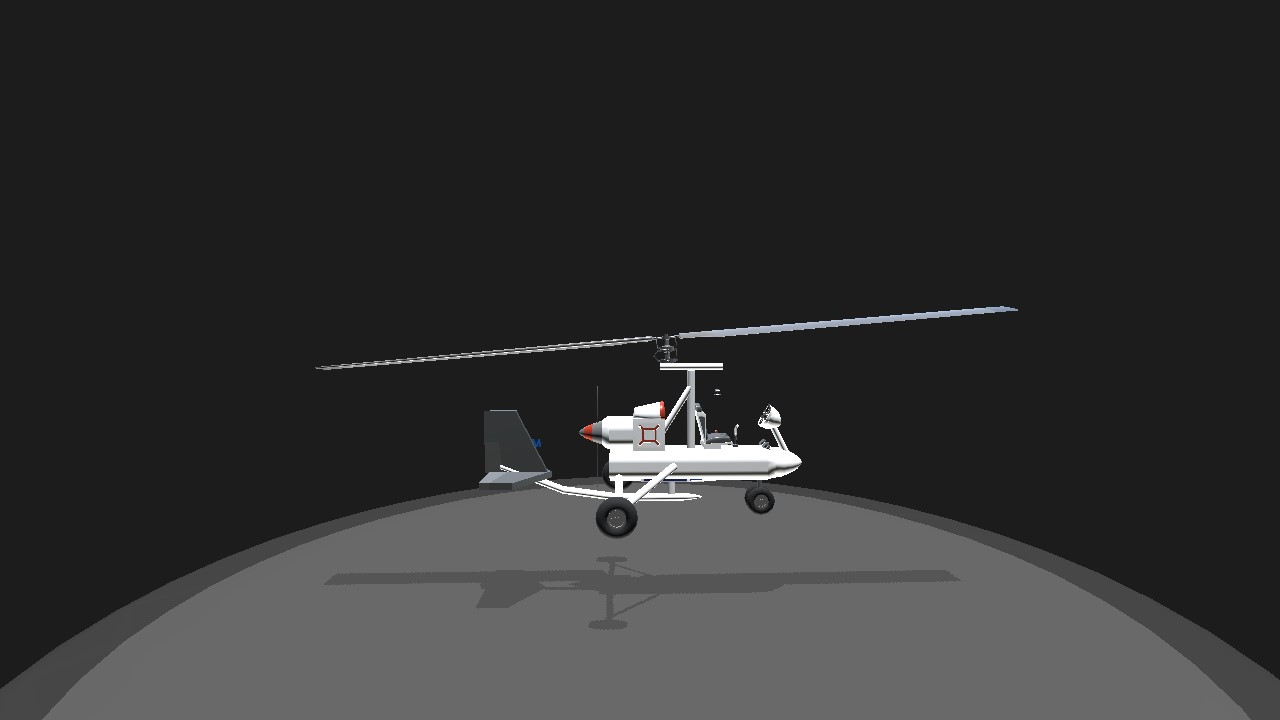
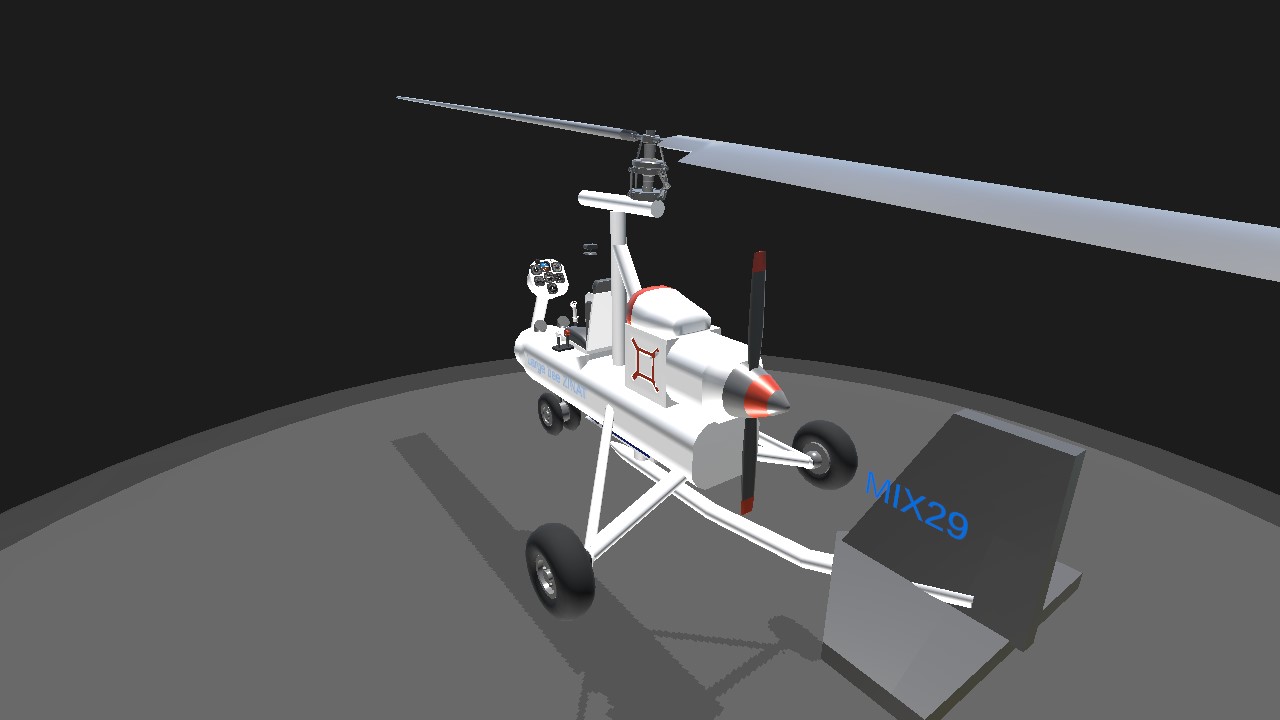
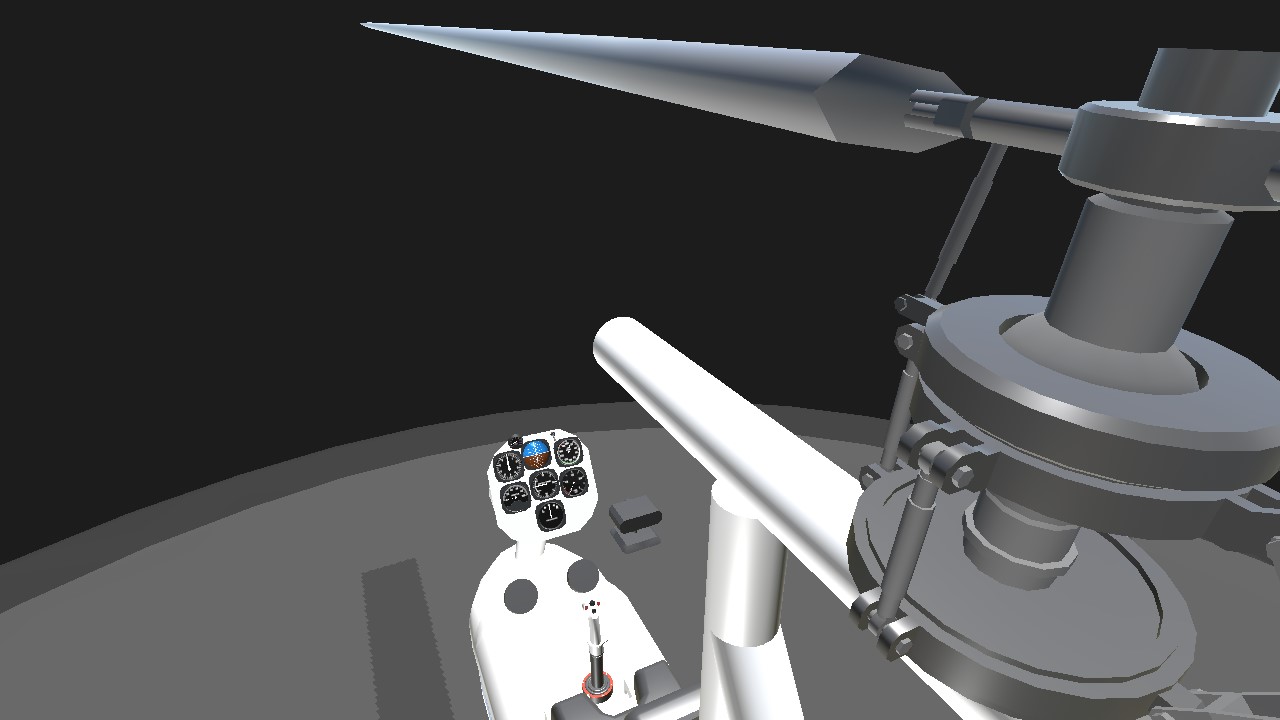
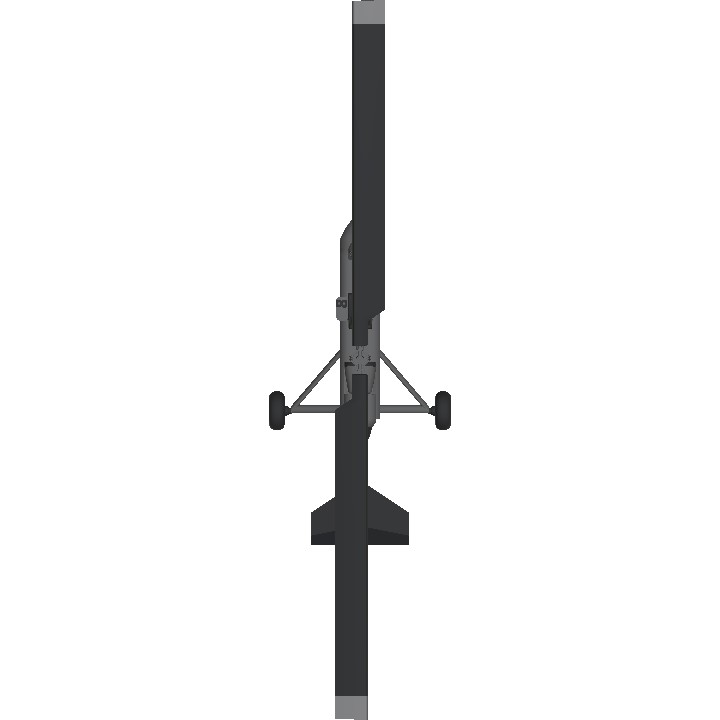
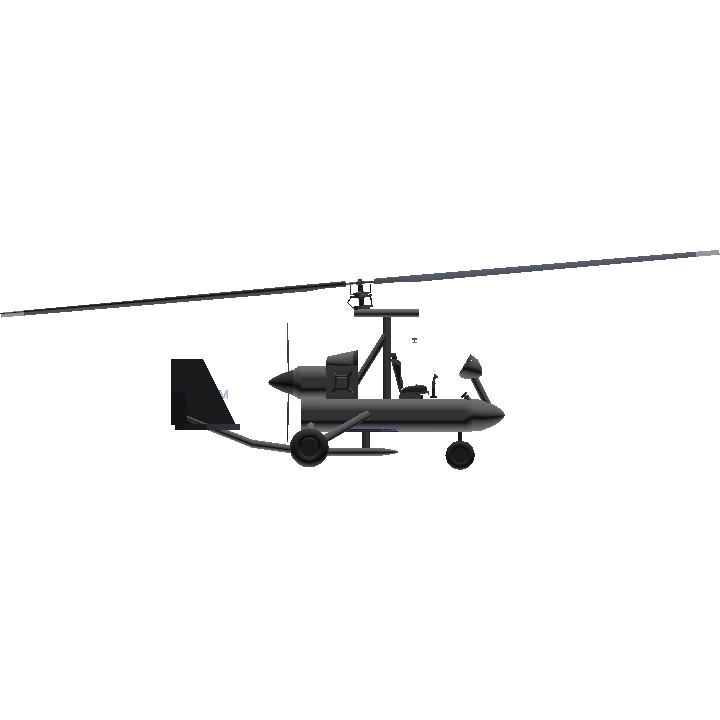
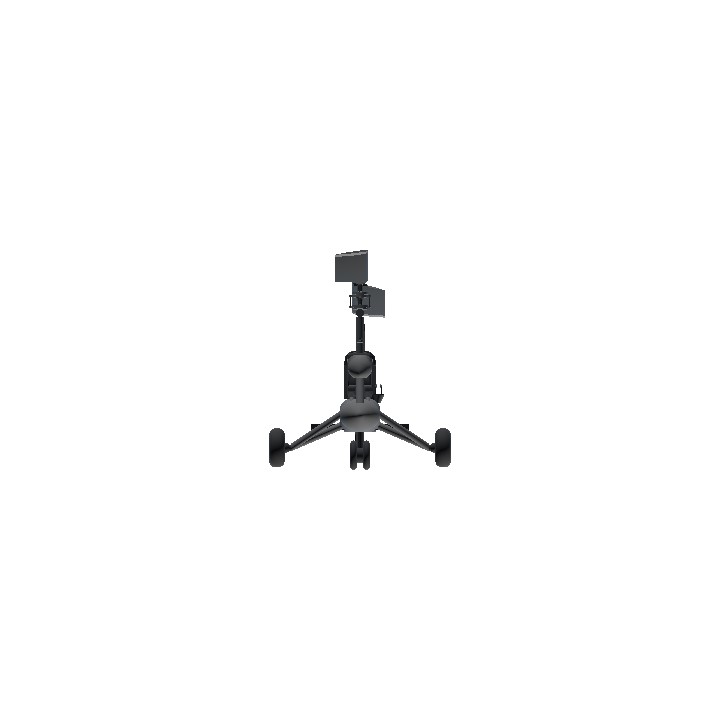
@SimpleMobileEngineering
I don't think I entirly unsteand it either, but as far as I can tell...the rotor applies lift to the gryo (hence why it can fly), and torque (a rotational spin along the rotor's axis). A helicopter counteracts this torque with a tail rotor, but an autogryo doesn't hve a tail rotor, so it must rely on forward movement.
Now usually this torque isn't too bad for an unpowered rotor, but...autogryos tend to be small and light so they don't have a lot if inertia to resit the torque. BTW, you might find that the vehicle climbs a bit better while (slightly) banked.
@atgxtg i dont understand about heli but still cool tho becouse he actually manage to make the heli spin more less than usual
@SimpleMobileEngineering
I think the spiining you are referring to is a side effect of higher torque from using a helirotor on a low mass aircraft. I don;t think there is an easy fir for it. I've got a two rotor gyro that acts similar. In SP, an autogryo needs the thrust from the prop to override the lift and torque of the rotor. Either that or roll into the turn and dive a little to pick up speed.
Nice autogryo! It's got all the basics right.
It was good and i like the yaw pedal but it needs some support so when we fly theres no spinning i suggest to put second propeller on top of it and make it spin in reverse direction